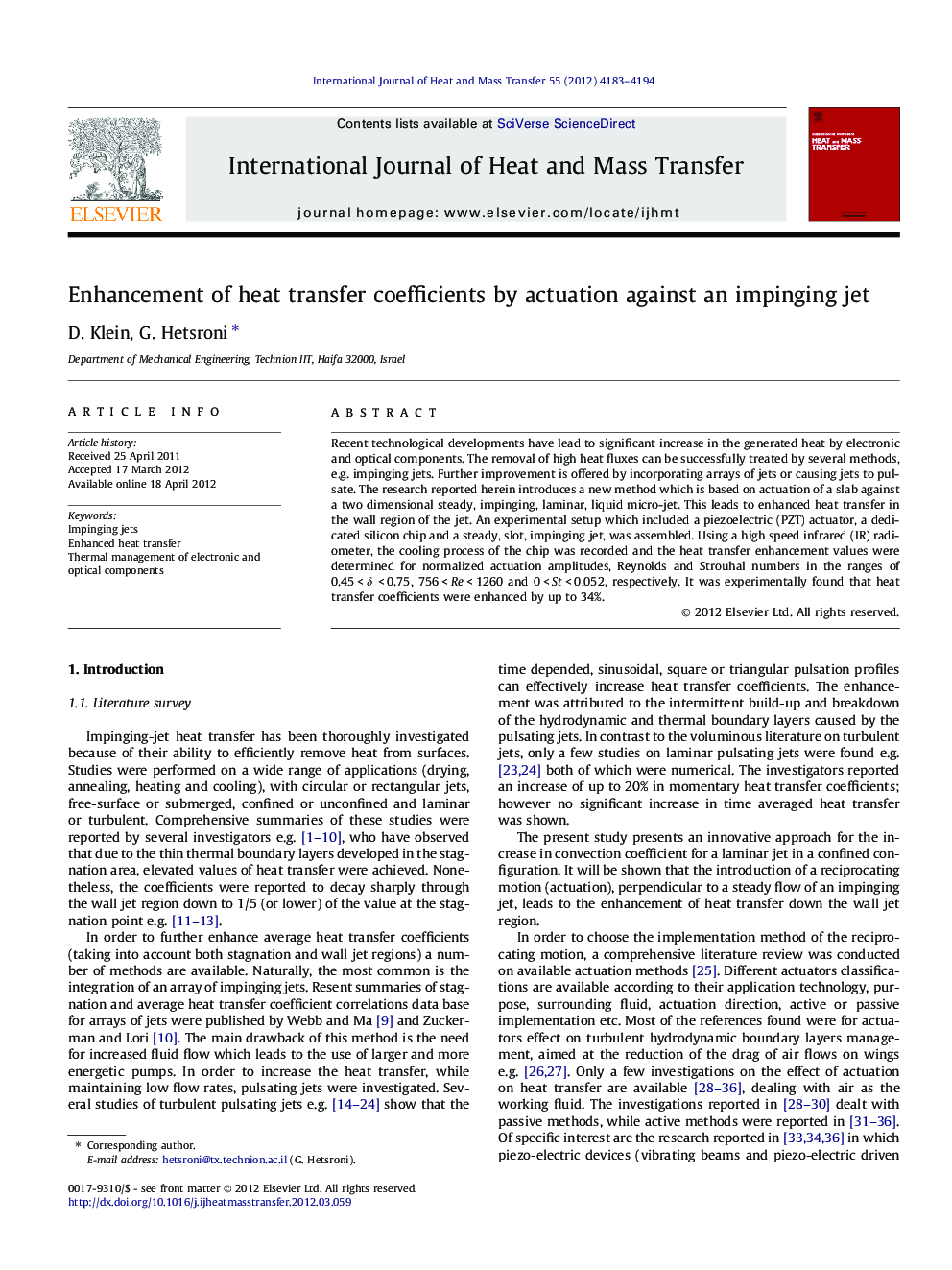| Article ID | Journal | Published Year | Pages | File Type |
|---|---|---|---|---|
| 659064 | International Journal of Heat and Mass Transfer | 2012 | 12 Pages |
Abstract
Recent technological developments have lead to significant increase in the generated heat by electronic and optical components. The removal of high heat fluxes can be successfully treated by several methods, e.g. impinging jets. Further improvement is offered by incorporating arrays of jets or causing jets to pulsate. The research reported herein introduces a new method which is based on actuation of a slab against a two dimensional steady, impinging, laminar, liquid micro-jet. This leads to enhanced heat transfer in the wall region of the jet. An experimental setup which included a piezoelectric (PZT) actuator, a dedicated silicon chip and a steady, slot, impinging jet, was assembled. Using a high speed infrared (IR) radiometer, the cooling process of the chip was recorded and the heat transfer enhancement values were determined for normalized actuation amplitudes, Reynolds and Strouhal numbers in the ranges of 0.45 < δ < 0.75, 756 < Re < 1260 and 0 < St < 0.052, respectively. It was experimentally found that heat transfer coefficients were enhanced by up to 34%.
Keywords
Related Topics
Physical Sciences and Engineering
Chemical Engineering
Fluid Flow and Transfer Processes
Authors
D. Klein, G. Hetsroni,
